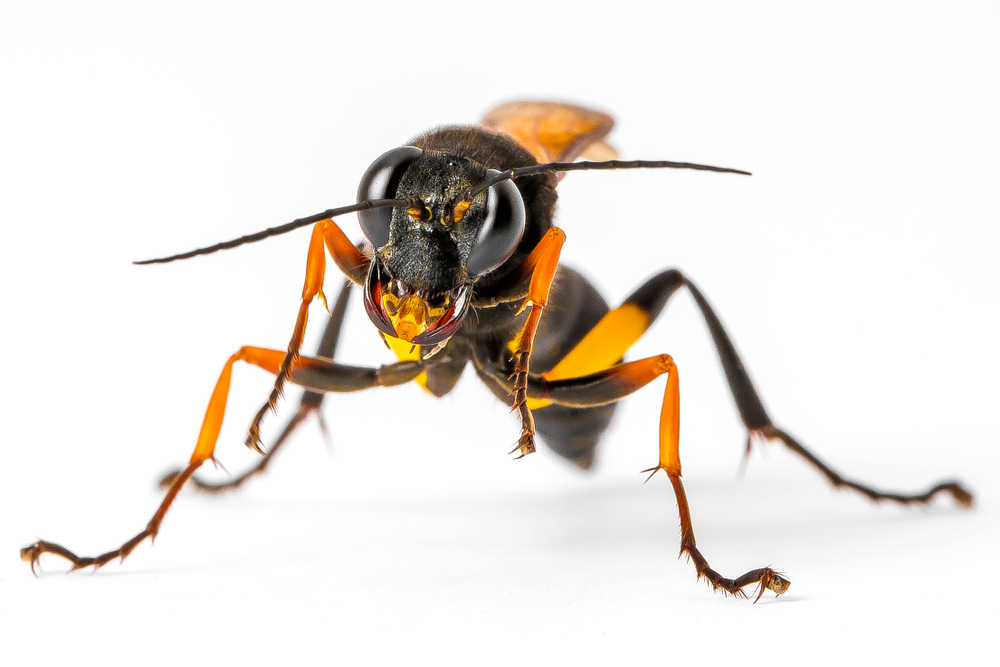Do Mud Daubers Sting?

Do mud daubers sting? Wasps usually evoke a great deal of anxiety or fear. However, solitary wasps such as the mud daubers do not defend their nest the way social wasps such as hornets and yellowjackets do. Mud daubers are very unlikely to sting, even when thoroughly aroused. They may sting if mishandled.
Mud dauber is a common name for a wasp that constructs its nest of mud. There are many species of wasps referred to as mud daubers, such as organ pipe mud daubers, black-and-yellow mud daubers and blue mud daubers. Mud daubers are commonly found throughout the United States. The nests are made by the female wasps, which consist of mud molded into place by the wasp’s mandibles
What Do Mud Daubers Look Like?
Although their appearance varies, most adult mud daubers are about ½ to 1 inch long (12-25 mm). Mud daubers are usually black, but they may have pale markings or a blue metallic luster. The mud dauber has a “thread-waisted” body, meaning there is a long, slender segment between the thorax and abdomen. Mud daubers also possess clear or dark wings.
Signs of an Infestation
Finding a nest is the most common sign of a mud dauber infestation. If the nest has holes, it may indicate that the nest is inactive or old, as mud dauber wasps create holes when they leave the nest.
How to Get Rid of Mud Dauber Wasps
The most effective way to prevent a mud dauber infestation is to eliminate harborage sites by sealing cracks and holes in buildings. This will, in turn, reduce the prey population.
Do mud daubers sting? Although mud daubers are not typically dangerous, their old nests are often taken over by other more dangerous wasp species.
If you suspect an infestation, please contact us HERE at ClearDefense Pest Control. We’ll be happy to help!
Click HERE for more information on mud daubers.
Tags: bugs, Charlotte, Chattanooga, Cincinnati, Cincinnatti, clear defense, cleardefense, Columbia, Durham, earwigs, exterminate, exterminator, Greensboro, Greer, infestation, insects, Kansas City, Knoxville, Nashville, pest control, pests, Raleigh, Raleigh Durham, Richmond, Winston Salem